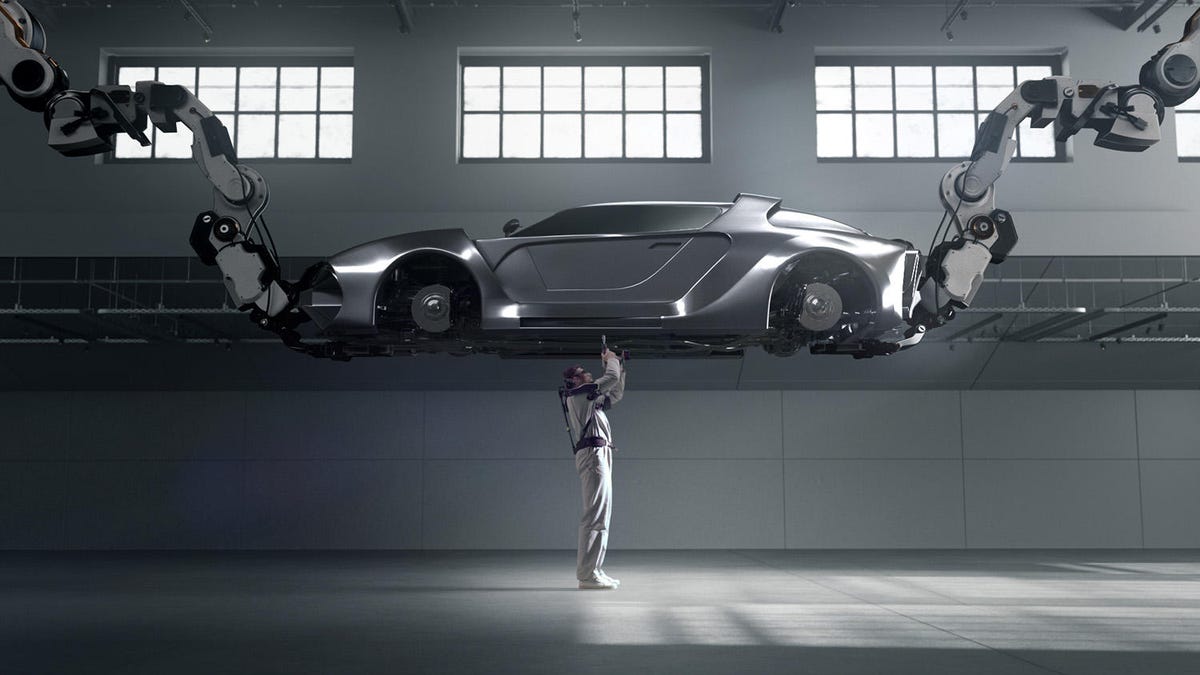Hyundai shows off exoskeleton robot to help assembly line workers
It's not the first time we've seen this kind of technology, but Hyundai says its own is best.

The robots are coming, but they're here to help.
When it comes to building cars, not every job is as easy as screwing in a few bolts or installing a panel. Often, assembly lines call for workers to do their job while reaching over their heads, which can put a strain on the arms, shoulders and other joints. That's where some companies, including Hyundai , see robots as a helping hand.
The South Korean automaker debuted its Wearable Vest Exoskeleton on Wednesday with the goal of transforming how workers complete overhead assemblies. Hyundai says the debut comes after it ran two pilot programs at US production plants with successful results.
The exoskeleton, "Vex" for short, is worn like a backpack and doesn't include a battery. Instead, the contraption mimics the human shoulder joint with multiple link points that create extra leverage. Since there's no battery, it also doesn't weigh a lot. Hyundai said the whole getup tips the scales at 5.5 pounds.
Ford and General Motors have also showed off their own versions of exoskeleton technology. Ford produces a very similar vest to take stress off workers doing identical activities to what Hyundai described. And GM created a robotic glove to help workers gain a better grip on tools.
In the jobs that some auto workers perform, the repetition can cause serious fatigue and injury. With the extra boost from the Vex, human workers aren't required to put as much force into the job, and for productivity, that's a very good thing. The vest fits a variety of human figures and has six levels of assistance to provide up to 12 pounds of added force.
Not only does Hyundai flaunt the fact the vest is lighter than competitors' creations, but it also said the contraption should be a lot cheaper, too. The company said exoskeleton vests often cost around $5,000 but the Vex should cost about $3,500 when it's put into mass production. Hyundai is looking at the possibility of outfitting each of its plants globally with Vex vests, and if that happens, the first cyborg vests of sorts will be ready to go in December.

